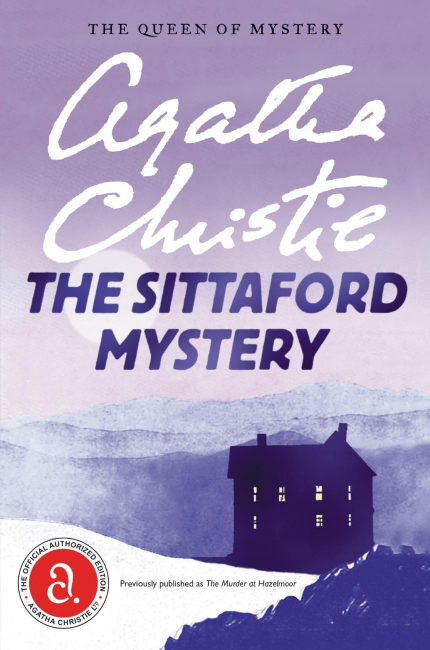The Sittaford Mystery, by Agatha Christie

The Sittaford Mystery by Agatha Christie
I learnt to read with turn of the century German editions of Sherlock Holmes – set in Fraktur. I still remember lying in front of the bookcase and deciphering those weird letters – and I prevailed!
Having thus been “initiated” it isn’t surprising I turned to other mystery authors once Conan Doyle’s Sherlock retired to beekeeping.
Whom else would I turn to than two masters of the field: Edgar Wallace (who has largely been forgotten in his native UK but whose books are still in-print here in Germany!) and Agatha Christie.
I think I’ve read every of Christie’s Miss Marple and Poirot books and greatly enjoyed them. Over the years, I’ve revisited Christie, reading her “The Secret Adversary” for example. (Three stars, no written review.)
When I came across a very favourable review of “The Sittaford Mystery” I found myself eager to revisit this childhood icon of mine – which usually is a bad idea.
Captain Trevelyan lies slain, a retired soldier of some royal windbag’s Navy, and a simpleton nephew of his, Jim, who fled the scene after unsuccessfully trying to beg some money out of his uncle is charged. Never fear, though, Simple-Jim, your smart fiancee comes to your rescue!
Introduced as being “not strikingly beautiful” but having an unforgettable “face which was arresting and unusual”. Featuring “common sense, savoir faire, invincible determination and a most tantalizing fascination” Emily Trefusis proceeds to go after every single one of the numerous red herrings Christie introduces.
Emily also enlists the help of a young journalist who immediately falls for her, of course. Suspects are almost as plentiful as motives for the murder and mystery after mystery is presented or at least alluded to but most of those are left behind among all the other plot holes.
Set in Dartmoor, near the moorland and not far from a prison even the escape of a violent convict over the moorland ends anti-climactic – the poor wretch runs 20 miles in a circle only to return to from where he fled.
Compare that to Conan Doyle’s “The Hound of the Baskervilles” and you’ll see how much potential Christie fails to realise.
The ending is achieved by a severe case of “deus ex machina” – the victim’s missing boots point by almost artistic literary convulsions to the one person Christie took pains to keep unsuspected only to condemn them in the end.
All of that combined with the dated language, the cliches, the wooden characters and the lacklustre execution of it all leads me to believe that I should probably let Dame Agatha rest in peace and remember all the good times I had in the past with her books instead of trying to recreate them.
Three out of five stars.
View all my reviews